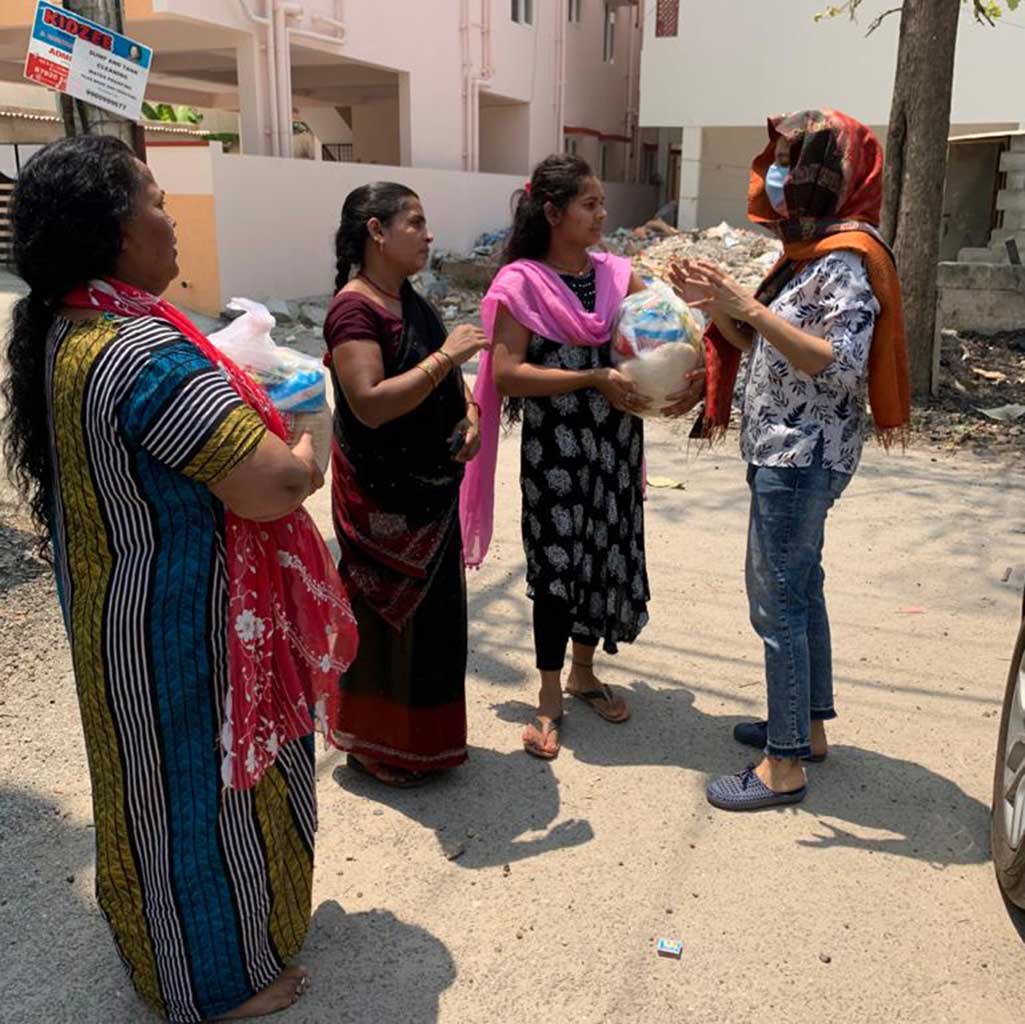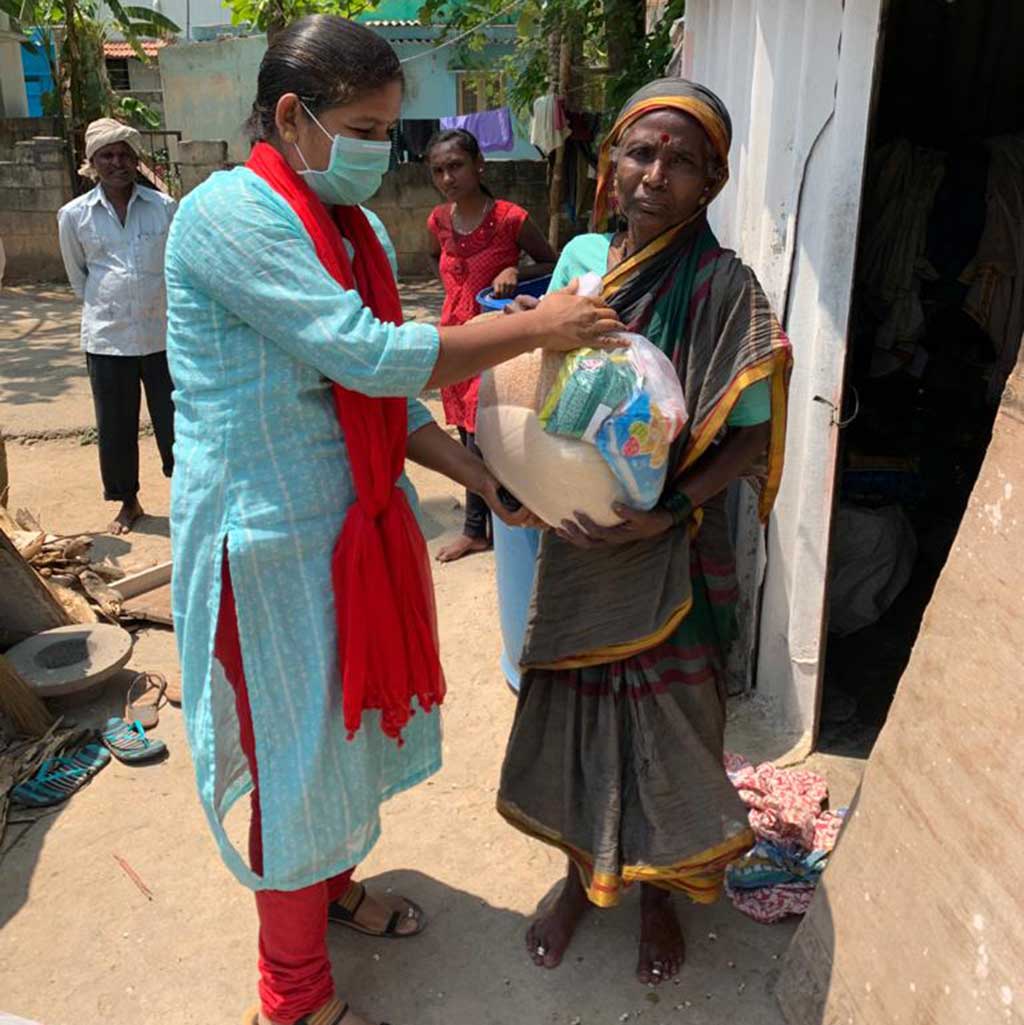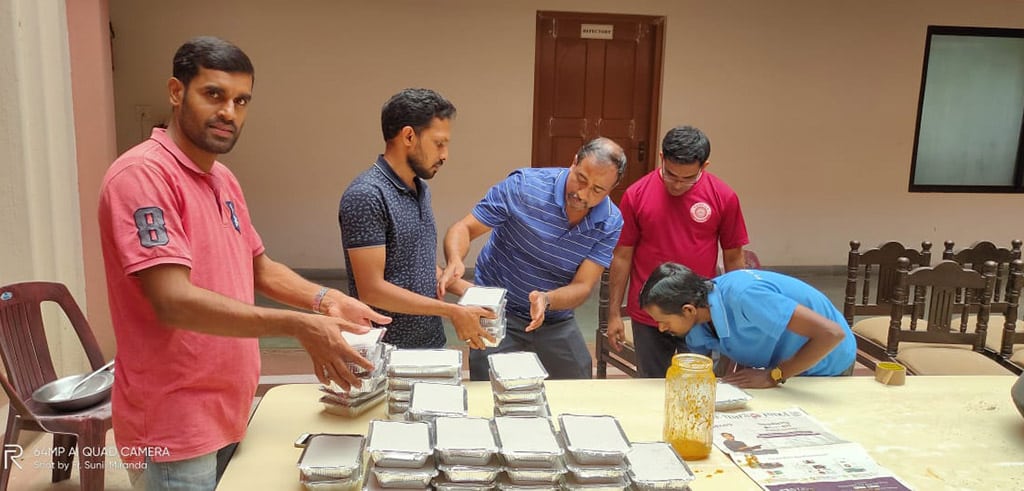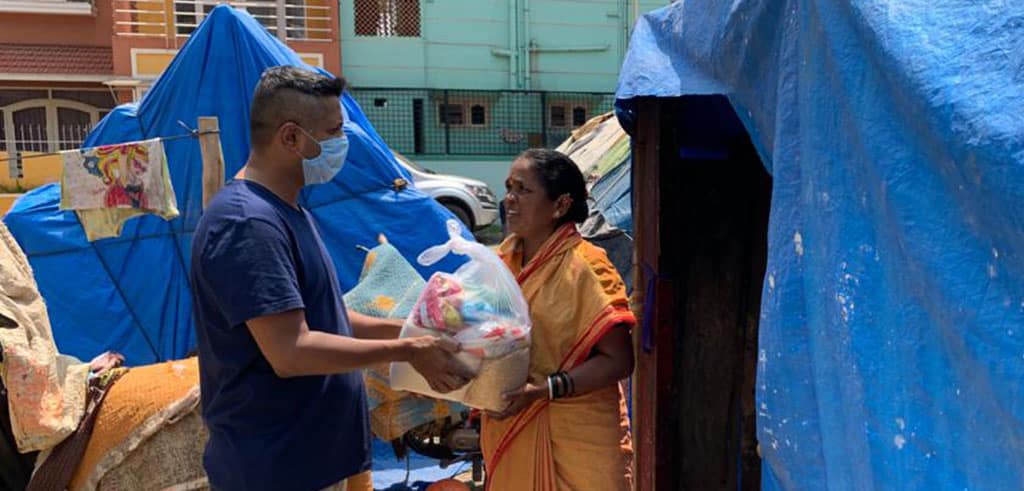“I just don’t want to imagine what was going on there!”
Pallottine Mission Secretary: India’s Poor in Lack of Money for Supplies
The Corona virus is a global threat. The emerging and developing countries of Africa or the Indian subcontinent are facing an even bigger danger: Due to the shut downs, the poor people in these countries simply don’t have the money to get food. The Pallottine Mission Secretary Fr. Markus Hau is now invoking on readiness to help.
No big wave of infection has reached India so far. But there is a stay-at-home-order just like in Germany, even stricter to be precisely. This is devastating for a country like India, isn’t it?
Fr. Markus Hau: Yes, it is. Imagine the situation: The stay-at-home-order came within hours. It’s not at all comparable to the situation we have here, where we still can go out shopping. The houses are not to be left anymore. The people just had a few hours left to buy supplies. I just don’t want to imagine what was going on there, in a country with millions of inhabitants! The people rushing to the shops to get supplies for the next fortnight. And keep in mind: Before you can go out buying food, you must have money. In India you have a huge amount of day laborers who only possess enough money for the next day, to feed their families. Or the family is living far away, and the workers send the money home. How can that work now? There is no short-time compensation in India. You are just fired at once. Public transport was put to a hold immediately, too. That means, the workers weren’t even able to reach home, they were simply left stranded. I have heard of that from our workers in Bangalore where we are building a school. We are at least able to get food packages for them, so that they can survive. Our Pallottine confreres give away rice, lenses and oil at many different places, you know, just the things mostly needed. And, as I mentioned before: You can only by supplies if you have got the money. This problem is currently hitting hard all poor people in India. That is leading straight into a catastrophe. And the longer it lasts, the more catastrophic it will be.
What about Africa? Are they going to face the same developments as in India?
Fr. Markus Hau: I know that in Nigeria and Malawi, there is also a stay-at-home-order. Our former Mission Secretary, Br. Bert, had to leave Africa some weeks ago due to these circumstances. The day he left the country, all shops were closed, public transport was stopped, and all churches were closed. This adds to the destabilization of a country which was already facing a lot of problems before. You just cannot predict what kind of social and political disturbances might arise there… Another difficulty the country is facing is the lack of knowledge and education of the inhabitants. Many are taken in by false statements which leads to a certain amount of aggression against white or Chinese people, as they are said to have brought the pandemic to the country.
What about the churches?
Fr. Markus Hau: There is not much acceptance for the fact that there are no more church services. Many deeply rely on services. Nigeria also has a stay-at-home-order, which is accepted, but the people living in rural areas just don’t understand why they are not allowed to attend services anymore. In times of fear and uncertainty, there is a much higher need for religion.


The security measurements in Africa might be a problem, too…
Fr. Markus Hau: When it comes to hygiene, safety-gaps or the wearing of masks, surely this is not really easily to be applied in countries like Nigeria South Africa or India. The people live together very closely. Families with several generations living under one roof. These are 20 to 30 people. All markets in Nigeria and Malawi consist of stands tightly packed, how is that meant to work there? There is simply now way to keep the required distances.
Might the fact that the average age of the population is relatively young help as a certain safe guard against the virus? What do you think about this?
Fr. Markus Hau: True enough, there is hope that a young population has a better chance of surviving with less trouble and that the level of pandemic infection of 70 percent happens earlier. But, me personally, I am worried about athreptic people there, and many of the are malnourished. Additionally, there is more or less no healthcare system. In all countries we are talking about, healthcare is a question of money. And that means there is no way for the poor to get medical aid.
We ourselves are facing and living in a crisis right now. Still: what can we, as Europeans, do to help in both India and Africa?
Fr. Markus Hau: Many, many appeals for help have been reaching us recently. From India, South Africa, Cameroon. I am sure, there will be more appeals from other African countries. All of this is a sign of the economic aspect involved there: The poor population is being thrown into misery. The Pallottine confreres are caring for daily food supplies. The most urgent plea is the plea for money to get food. So, it is important, though we are facing a crisis in Germany too, not to forget about this poverty.
What is your hope there?
Fr. Markus Hau: There is a theory which says: African countries have learnt a lot throuh the Ebola virus, and put things to a hold much earlier than the European countries. Maybe that helps them. This is my little hope there.
Interview: Alexander Schweda
Translation: Stefanie Ettenberger


The Pallottines‘ Corona Help
Pallottines‘ offer help on three different levels:
1. Daily food packages
2. Supporing familes in the vicinity
3. Caring for their own workers who are not allowed to work at the moment
Please donate here.
Tipp:
Auch in seinem Interview mit DOMRADIO.DE, dem Sender des Erzbistums Köln, berichtete unser Missionssekretär Pater Markus Hau über die Corona-Krise in mehreren afrikanischen Ländern. Die Ausgangssperren führen bei der armen Bevölkerung bereits jetzt überall zu Hunger und Verzweiflung.
Recommended











